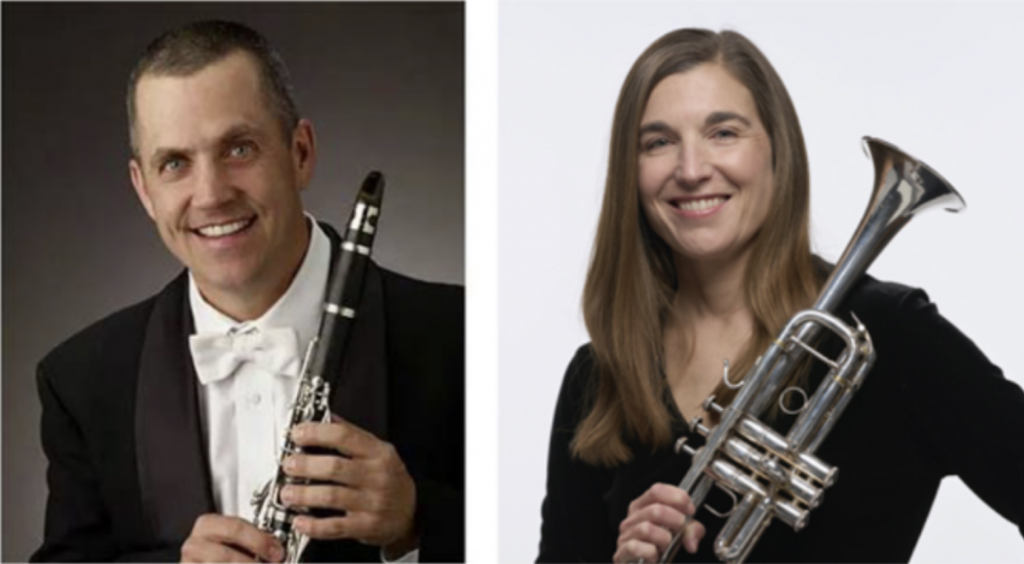by Kevin McLaughlin

The succinct duos that opened the program, Fanfare for a New Theatre for trumpets and Lied Ohne Name for bassoons, made a nice pairing for their length and affective dissimilarity. Where the trumpets skirmished, the bassoons chatted dispassionately — both in under a minute. Accurate and faithful playing of both works only left us wanting more.
In the first of the Three Pieces for Solo Clarinet, McKelway gave an atmospheric reading, with tasteful rubato and smooth intervals — foreshadowing the Pastorale section of L’Histoire du Soldat later in the program. The clarinetist cruised through the second movement, the longest and the most technically hostile of the three. Stravinsky may well have been influenced by early jazz great Sidney Bechet in the last movement — in any case, McKelway didn’t shy from the raggedy spirit, rejoicing mightily in every syncopation and accented offbeat.
Regarding his use of wind instruments to best realize his neoclassical ideas, Stravinsky put it this way: “Wind instruments seem to me more apt to render a certain rigidity of form I had in mind than other instruments…the difference of the volume of these instruments renders more evident the musical architecture.”
The Octet, an early and perfect realization of Stravinsky’s neoclassical ideal, is an odd assembly of four winds and four brass, a conception evidently revealed to Stravinsky in a dream in 1922.
Conductor Andrew Grams kept tempi moving along, for an emotionally restrained but witty result, with plenty of sparkle. Bekeny and her fellow trumpeter Ted Clark were models of articulated elegance — Clark’s bugle variation was especially fine. Richard Stout and J.c. Sherman made short work out of the descending trombone scales in the second movement (tema con variazioni), and bassoonists Barrick Stees and Thomas English were engines of rhythm throughout. George Pope’s flute cadenza at the end of the fugato lit the fire for the red-hot finale.
The weird mixture of light charm and darkness in L’Histoire du Soldat always seems to catch the listener by surprise. Probably its composition during World War I, with all of its profound transformations and devastation, explains it. Narrator Brendan Caldwell joined the seven instrumentalists, delivering his lines agreeably. We all felt sorry for the soldier, happy and then sad for the young couple, and resentment toward the devil (spoiler alert — the devil wins).
As the soldier heads off “along the hot and dusty road,” the band played a delightfully crooked march. But there was nothing cute about this performance. Grams kept tempos relentless and the mood slightly diabolical. The playing was brilliant — especially Peter Otto’s virtuosic violin jams in the three dances, and Bekeny’s and McKelway’s impressive escapades up and down their instruments — but also haunting and cool. The aforementioned Pastorale may have been the dramatic turning point, as we suddenly realized nothing good would come of all of this.
Published on ClevelandClassical.com May 23, 2023.
Click here for a printable copy of this article



